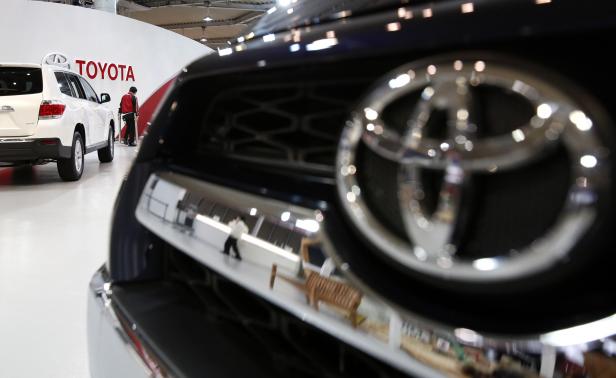?
 |
| A showroom staff member works under the logo of Toyota Motor Corp, between cars displayed at its showroom in Tokyo February 4, 2014. [Photo / Agencies]? |
Toyota Motor Corp will pay a record $1.2 billion to resolve a criminal probe into safety issues, in a deal that could serve as a template for how US authorities approach a similar investigation into General Motors Co.
The settlement between the Justice Department and Toyota includes an admission by the auto manufacturer that it misled American consumers about two different problems that caused cars to accelerate even as drivers tried to slow them down.
The agreement comes as General Motors is also under investigation over its handling of an ignition switch failure linked to a dozen deaths. GM last month recalled more than 1.6 million vehicles 13 years after first noticing the issue. The payment Toyota agreed to marks the largest such penalty levied by the United States on an auto company, officials said.
"My hope and expectation is that this resolution will serve as a model for how to approach future cases involving similarly situated companies," Attorney General Eric Holder told a news conference.
Holder declined to discuss GM specifically but Preet Bharara, the chief US prosecutor in Manhattan who joined him at the news conference, made a verbal slip and referred to the case against Toyota as one against GM. He quickly corrected himself.
The Toyota settlement marked a huge victory for safety advocates who fought for years for criminal prosecution of automakers over safety violations.
Although no individuals at Toyota were charged, the case was the first federal criminal case of its kind since the passage of the first US auto safety law 48 years ago.
"It means at the highest levels of the auto company, they have to worry about going to jail if they don't report a defect," said Joan Claybrook, a former president of the nonprofit Public Citizen who favors stricter safety standards.
Toyota's North American legal chief Christopher Reynolds said in a statement that the settlement serves to put an "unfortunate chapter" behind the company.
